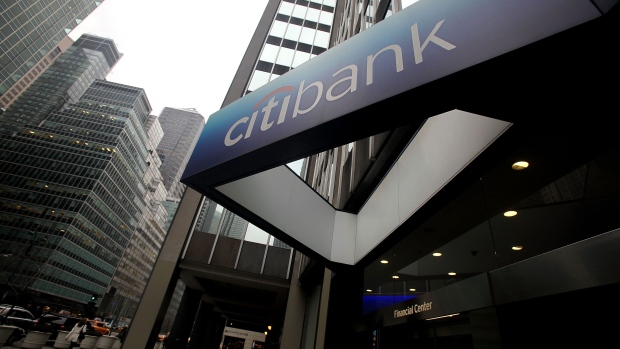Sep 5, 2023
Citigroup’s Beaten-Down Shares Are Worth Buying, Mayo Says
, Bloomberg News

(Bloomberg) -- Citigroup Inc.’s $41 share price reflects too much fear, and investors looking for a long-term opportunity should buy the stock, according to Wells Fargo & Co. analyst Mike Mayo.
The Wall Street bank’s shares are trading at prices that imply its balance sheet could take a big hit from asset losses, analysts led by Mayo wrote. But that seems unlikely given the current strength of the company’s assets and its relatively high capital levels, the analysts wrote.
“Even for Citi, this is getting to be too much,” the analysts wrote. Shares of Citi fell more than 8% this year through Friday’s close.
Wells Fargo believes the bank’s share price could rise to around $55 over the next 12 months, an increase of almost a third from Friday’s close.
The low valuation of Citigroup’s shares gives the bank a strong incentive to buy back shares, the analysts wrote. Doing so could give a quick boost to earnings per share and tangible book value per share. Wells Fargo projects about $22 billion of buybacks over the next 10 quarters, equal to more than a quarter of Citigroup’s market value as of August 31.
The bank has been cutting costs, and its consumer business is exiting many foreign markets, which should also help cut expenses.
Citigroup’s share price is around half its tangible book value per share, a measure of the net accounting value of the company’s tangible assets, according to the analysts. That’s close to the lowest since the financial crisis— the average over that period is around 0.8 times. Current levels seem to reflect concerns of a hole on the balance sheet, the analysts wrote.
But Wells Fargo expects the bank to keep boosting its tangible book value. Citigroup has taken measures to cut the riskiness of its assets, including keeping its commercial real estate exposure relatively low, and focusing its corporate credit exposures on high-grade companies.
“We are very familiar with the problems at Citi, but even for us, this valuation seems unreasonable relative to our targeted returns, the strength of the balance sheet, likely continued growth in tangible book value, and a strategy that is finally addressing problems that have been in place for several decades,” the analysts wrote.
The analysts did flag some headwinds, like upcoming Basel 3 regulatory changes. But Citigroup has high capital ratios and is generally well positioned to face these, the analysts wrote.
©2023 Bloomberg L.P.






